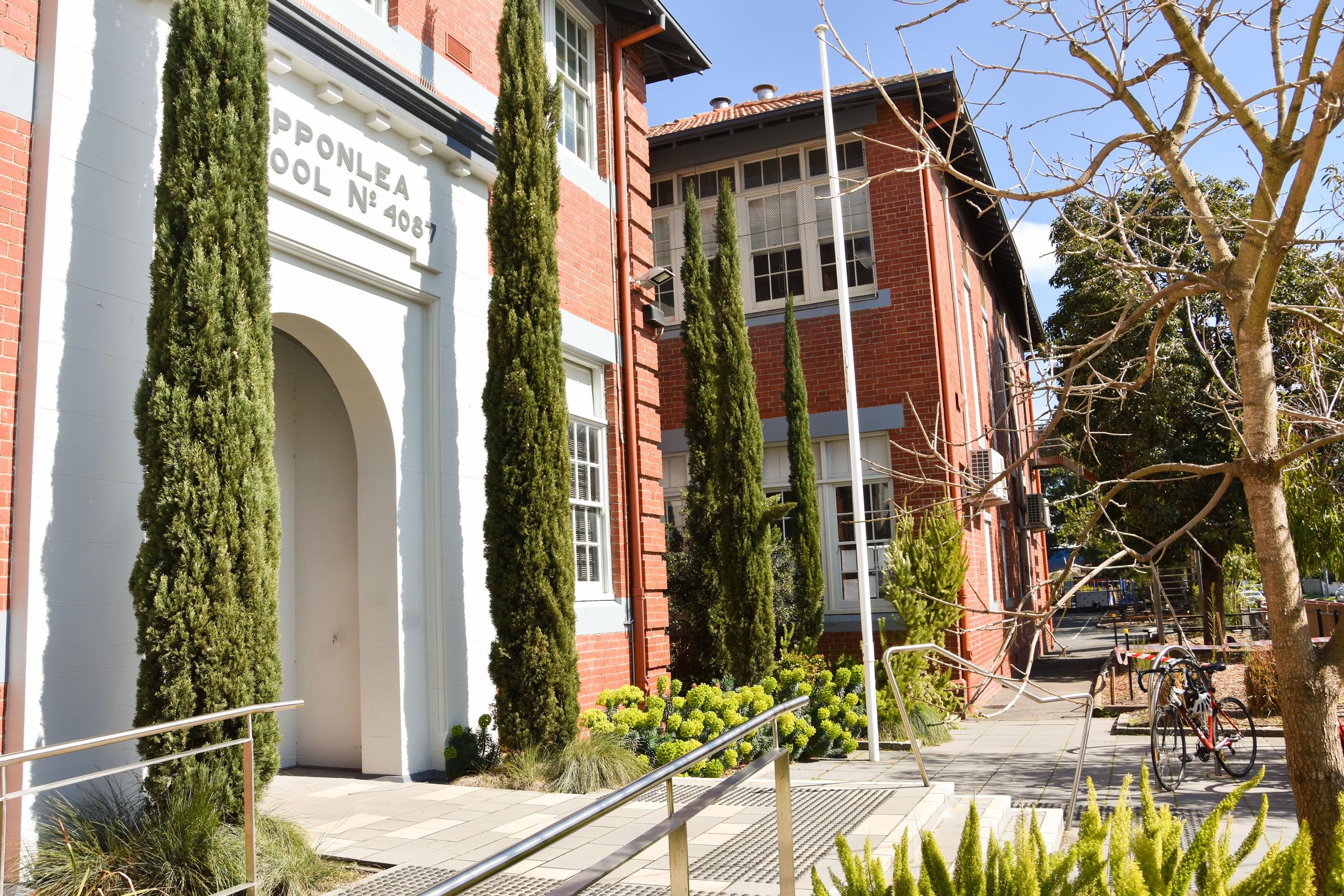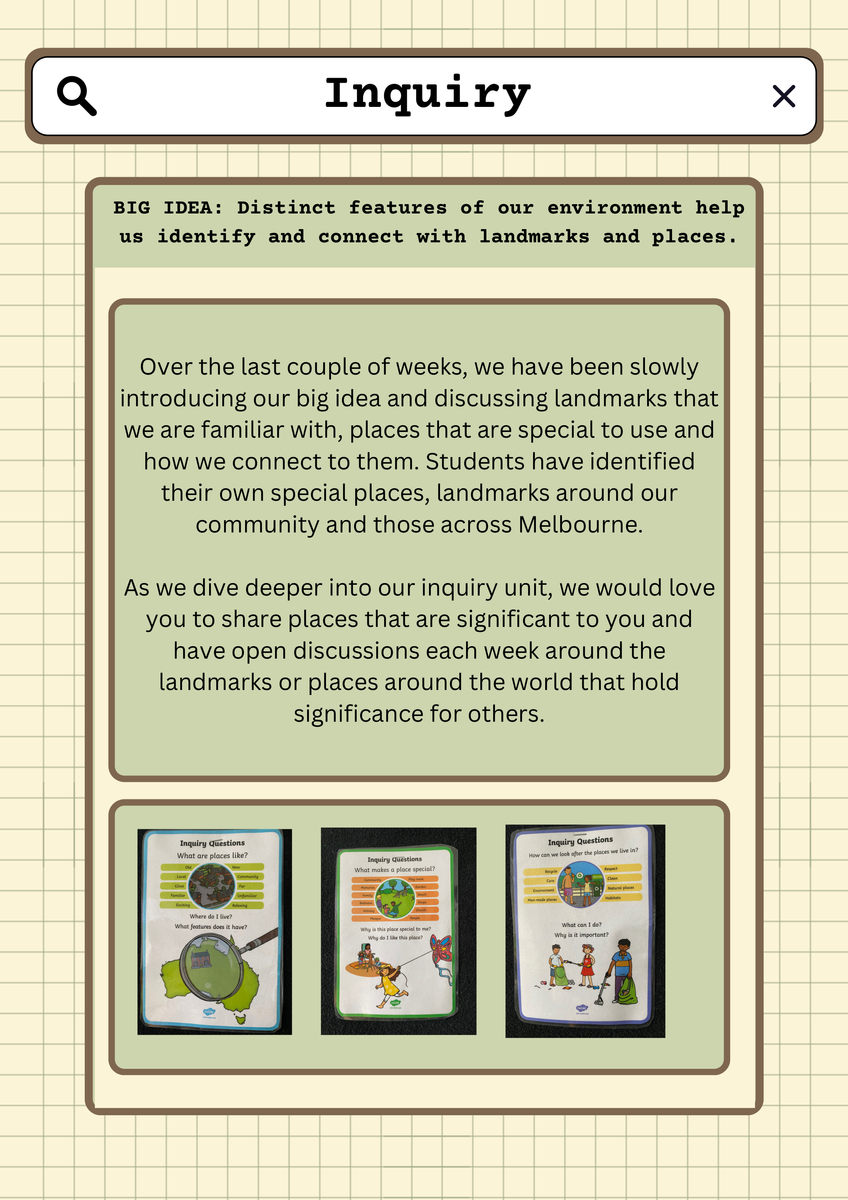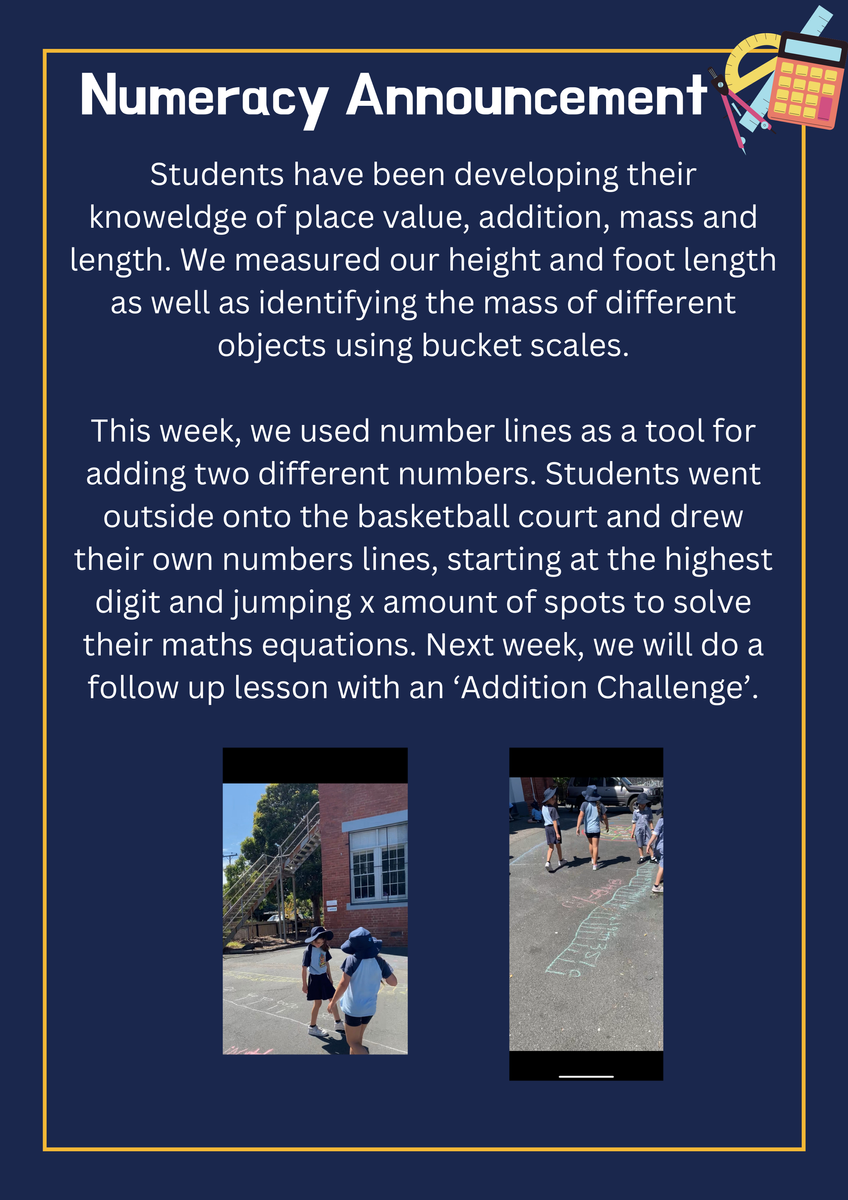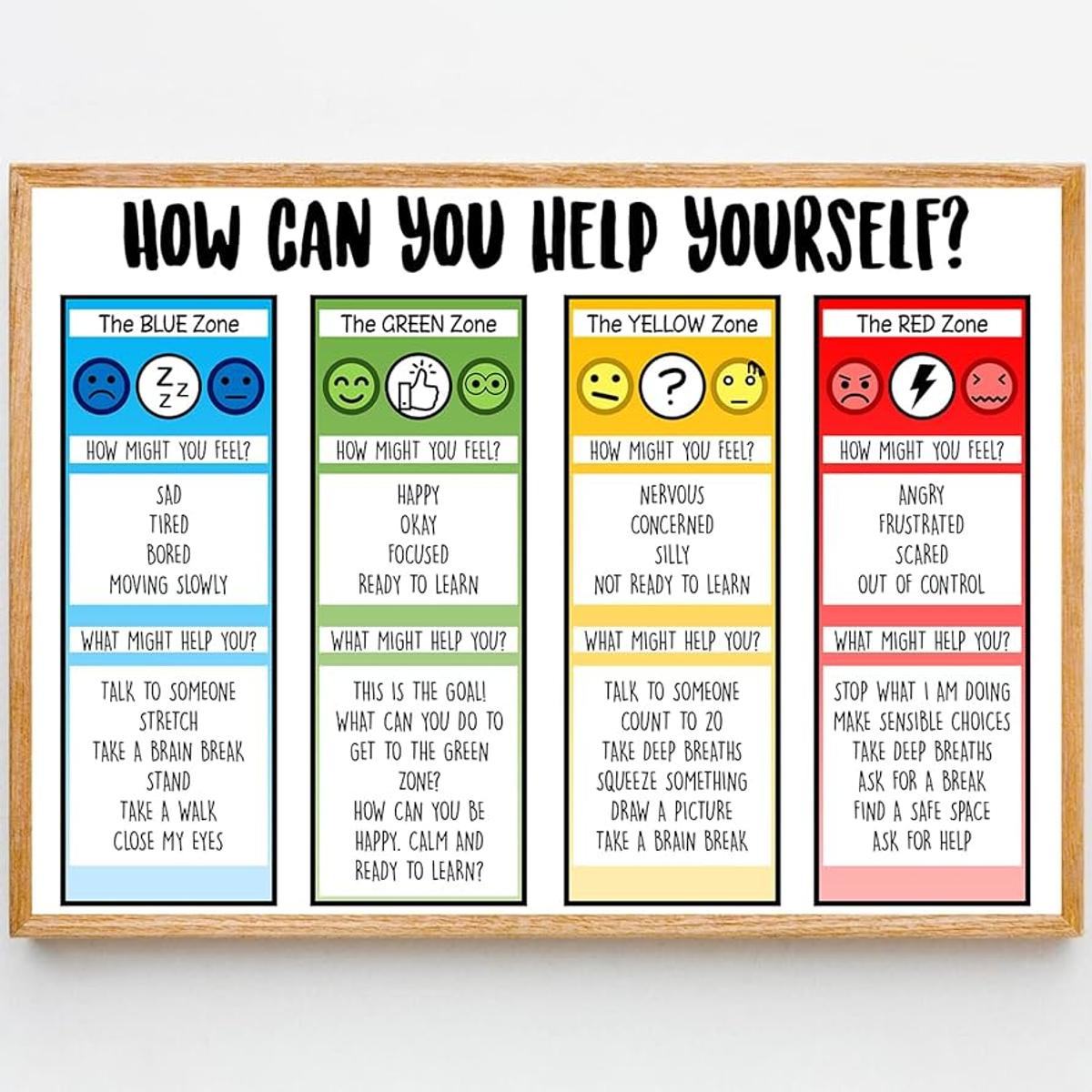Principal Team Message
Term 1 - Edition no: 3, 2024

Principal Team Message
Term 1 - Edition no: 3, 2024
In the spirit of fostering deeper connections between home and school, we want to remind you that our teachers are eager to open their classrooms throughout the week and engage in meaningful discussions about curriculum delivery across all year levels. We believe that when families are informed and involved, students thrive.
Throughout the year, our dedicated teaching teams will be posting curriculum overviews known as Seesaw blogs. These overviews provide valuable insights into what students will be learning, as well as important milestones and objectives for each year level. It's a window into the educational journey of your child, allowing you to stay connected and informed.
We understand that busy schedules can sometimes make it challenging for families to attend curriculum presentations in person. That's why we're excited to announce that we will be recording and posting these presentations on Seesaw. Whether you're unable to attend in person or simply want to revisit the discussions at your convenience, Seesaw provides a convenient way to stay connected.
Additionally, students will soon be uploading their individual learning goals onto Seesaw. These goals are reflections of their aspirations and ambitions, and we encourage families to review and support their children's journey towards achieving them.
As we look ahead, we invite you to take advantage of these opportunities to connect with your child's learning experience. Whether it's through attending classroom presentations, exploring curriculum blogs, or engaging with Seesaw, your involvement makes a meaningful difference in your child's education.
Below are the Seesaw messages and Blogs in the last Curriculum Overview.










As we approach the end of March, it's time for us to announce the nomination process for the 2024 School Council membership. We are thrilled to share that many existing members of our School Council have expressed their eagerness to continue their service for an additional tenure. Their dedication to our school community is truly commendable, and we are grateful for their continued commitment.
We would like to take a moment to express our heartfelt gratitude to Isabel Lasla, a critical member of the Facilities and Environment Subcommittee. Isabel's invaluable skills and dedication have significantly contributed to numerous master plan projects, including the forthcoming construction of the inclusive learning deck scheduled for this year. We recognise and appreciate her immense contribution to our school community.
Moreover, we are excited to announce that the first official School Council Annual General Meeting will take place on Tuesday, March 26th. During this meeting, we will induct our 2024 Council Members, who will play pivotal roles in shaping the future of our school. We extend our warmest congratulations to the following individuals:
Parent Members:
Department of Education (DOE) Members:
We believe that the diverse expertise and perspectives of our Council Members will contribute significantly to the enhancement of our school's educational environment and community engagement.
We also want to remind everyone that School Council meetings are open to all members of the community. These dates have been conveniently set on the COMPASS calendar for your reference.
Once again, we express our sincere appreciation to all individuals who have dedicated their time and effort to nominate themselves for the School Council membership. Your participation and commitment are fundamental to the success of our school community.
ZONES OF REGULATION-SENSORY STRATEGIES
As we approach the upcoming Curriculum Day, we want to take a moment to highlight the valuable opportunity it presents for our teachers to further enhance their support for your children's wellbeing. While students and families may be looking forward to an extended long weekend, our dedicated staff will be engaging in an essential professional development session with Jade Sacker, our school's Occupational Therapist.
The focus of our Curriculum Day will revolve around refining our skills and knowledge in the areas of "Zones of Regulation" and sensory support for our students. The significance of this focus cannot be overstated, as it forms a crucial pillar in supporting the holistic development of our students.
In today's dynamic educational landscape, fostering social and emotional regulation skills has become more critical than ever. These skills are not only essential for personal development but also integral components of the Personal and Social Capabilities outlined in the Victorian Curriculum.
The Zones of Regulation framework, developed by Leah Kuypers, is a systematic, cognitive-behavioural approach used to teach self-regulation by categorising all the different ways we feel and states of alertness into four concrete zones. These zones include:
The Blue Zone: Characterised by feelings of sadness, tiredness, or boredom. Students in this zone may require strategies to increase their energy levels and engagement.
The Green Zone: Represents a calm and focused state. Students in the green zone are typically ready to learn and interact positively with others.
The Yellow Zone: Indicates a heightened state of alertness and elevated emotions, such as frustration, anxiety, or excitement. Students may need assistance in returning to the green zone for optimal learning and social interaction.
The Red Zone: Signifies intense emotions such as anger, rage, or panic. In the red zone, students may struggle to regulate their emotions and behaviour, necessitating immediate support and intervention.


Understanding and effectively utilising the Zones of Regulation framework equips our staff with valuable tools to support students in recognising and managing their emotions. By teaching students to identify their current zone and providing them with appropriate strategies, we empower them to navigate various social and academic situations with confidence and resilience.
We are committed to providing our students with the tools and support they need to become resilient, self-aware individuals capable of navigating life's challenges with confidence and competence.
As we stride through another exciting term of learning and growth, we hope our students are feeling connected, engaged, and empowered in their educational journey. At the heart of our professional learning communities lies student voice and feedback, which are crucial in shaping our classrooms and student learning experiences.
In line with our commitment to continuous improvement, we're thrilled to announce the upcoming administration of PIVOT surveys. These surveys serve as invaluable tools for gathering student perspectives on classroom environments, teaching practices, and overall learning experiences.
But what exactly are PIVOT surveys, and why are they important?
Understanding PIVOT Surveys:
PIVOT stands for "Perception Insights Values and Opportunities for Teaching," which succinctly captures the essence of what these surveys aim to achieve. PIVOT surveys are designed to provide a comprehensive understanding of students' perceptions of their learning environments, the effectiveness of teaching methods, and the opportunities available for growth and improvement.
Empowering Student Voice:
Student feedback matters deeply to us. PIVOT surveys offers students a platform to voice opinions, share experiences, and contribute to meaningful changes within our learning communities/classrooms. By participating in these surveys, students play an active role in shaping the future of their learning environment.
The insights gathered from PIVOT surveys serve as catalysts for positive change. They enable our teachers to identify areas of strength and areas for improvement within our educational practices. Whether it's enhancing classroom dynamics, refining teaching techniques, or fostering greater student agency, student feedback helps set important wheels in motion toward a more enriching and inclusive learning experience for all.
As the National Assessment Program for Literacy and Numeracy (NAPLAN) approaches on March 13, students across the state of Victoria in Years 3, 5, 7, and 9 are gearing up for a day of online testing. While NAPLAN serves as a valuable tool for assessing student proficiency, it is crucial to recognise that it is just one measure of a student's abilities and should not be the sole determinant of their capabilities.
At Ripponlea, we understand the significance of NAPLAN assessments while also prioritising the well-being and comfort of our students. We believe in creating a stress-free environment that allows students to showcase their abilities without unnecessary pressure or anxiety.
Here are some ways parents can support their children and help alleviate the stress associated with NAPLAN testing:
Emphasise the Big Picture: Remind your child that NAPLAN is just one snapshot of their academic journey. Encourage them to do their best but reassure them that their worth is not solely determined by their performance on this test.
Promote a Positive Mindset: Encourage a positive attitude towards testing. Help your child understand that mistakes are a natural part of learning and that NAPLAN is an opportunity to demonstrate what they know and can do.
Maintain a Balanced Perspective: Keep NAPLAN in perspective by highlighting your child's strengths and achievements in other areas, such as creativity, critical thinking, and social skills. Remind them that NAPLAN does not measure these important qualities.
Create a Supportive Environment: Foster an environment at home where your child feels supported and encouraged. Be available to listen to their concerns and offer reassurance. Encourage open communication about their feelings regarding NAPLAN.
Focus on Preparation, Not Pressure: Instead of putting pressure on your child to perform well, focus on helping them prepare effectively. Practice sample questions together and discuss test-taking strategies that can help them feel more confident and prepared on the day of the test.
Highlight Real-Life Applications: Help your child understand the relevance of the skills being assessed in NAPLAN to their everyday lives. Show them how literacy and numeracy skills are used in various contexts beyond the classroom.
Trust the School's Approach: Understand that our school utilises a range of assessment methods, including internal diagnostic testing and formative assessments, to monitor student progress and identify areas for improvement. Trust in our school's approach to supporting student learning beyond NAPLAN testing.
Encourage Healthy Habits: Ensure your child gets plenty of rest, eats nutritious meals, and engages in regular physical activity leading up to the test. A healthy body and mind are essential for optimal performance.
By implementing these strategies and fostering a supportive environment, parents can help alleviate the stress and anxiety associated with NAPLAN testing. Remember, NAPLAN is just one piece of the puzzle in understanding a child's academic journey, and the focus should always be on promoting holistic growth and development.
Let's empower our children to approach NAPLAN with confidence and resilience, knowing that they are supported every step of the way.


Harmony Day, celebrated on March 21st each year, holds profound significance in Ripponlea's calendar. It serves as a poignant reminder of the importance of cultural diversity, inclusivity, and mutual respect.
This year, the school's approach to Harmony Day transcends mere festivities; it's an opportunity for education, reflection, and action.
At Ripponlea, teachers recognise that addressing racism requires more than surface-level acknowledgement. It demands open dialogue, critical thinking, and a genuine commitment to change. As such, the school has designed a series of interactive workshops, discussions, and activities aimed at empowering students to confront and dismantle racism in all its forms.
Central to Ripponlea's approach is the education and empowerment of its students. Through age-appropriate lessons and engaging activities, children are encouraged to explore the concept of racism, its historical roots, and its enduring impact on individuals and communities.
By fostering empathy and understanding, Ripponlea seeks to equip students with the knowledge and tools necessary to become advocates for change. As Harmony Day approaches, let us join hands and reaffirm our collective commitment to a world free from racism, where every individual is celebrated and respected for who they are.
This year, under the theme “Everyone Belongs,” Harmony Week is scheduled from Monday, March 18 to Sunday, March 24.
As part of our day we encourage students to incorporate a touch of orange into their dress for the day, symbolising unity and our shared commitment to an inclusive Australia.
The colour orange not only embodies social communication and meaningful conversations, but also resonates with the freedom of ideas and the promotion of mutual respect.
Until next fortnight!
Natalie Rose & Marta Campbell
Principal Assistant Principal

